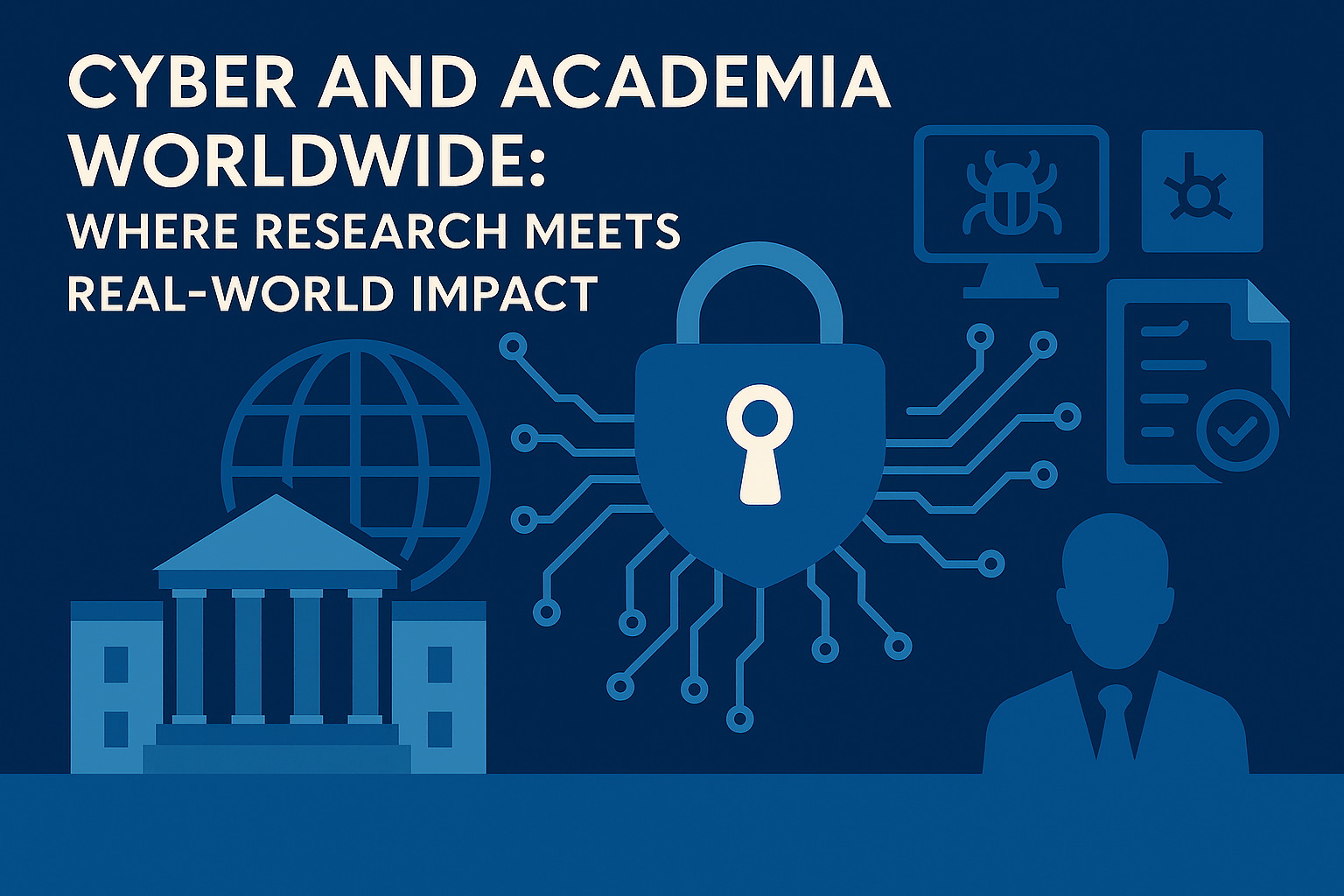From Singapore to São Paulo, academic institutions are becoming key players in the global cybersecurity landscape. While the US, UK, and EU often dominate discussions of academic cybersecurity, universities and research institutions across Asia, Africa, Latin America, and Oceania are rapidly gaining ground, shaping national policy, developing sovereign cyber capabilities, and launching novel technologies tailored to regional challenges. This article explores how academia across the world is influencing cybersecurity practice, producing talent, and collaborating across borders to tackle today’s most pressing digital threats.
1. Asia: Research, Sovereignty, and ScaleSingapore
- Institute for Infocomm Research (I²R), A*STAR – Focused on AI, threat analytics, and secure communications
- National University of Singapore (NUS) – Cryptography, cyber-physical systems, and blockchain security
- Cyber Security Agency of Singapore (CSA) works directly with academic partners to advance R&D and talent development
Why it matters: Singapore is a global hub for cyber policy, and its academic institutions influence ASEAN-wide standards and capacity building.
South Korea
- KAIST (Korea Advanced Institute of Science and Technology) – Advanced threat detection and post-quantum crypto
- Strong government links via the Korean Internet & Security Agency (KISA)
Japan
- University of Tokyo and Keio University – Privacy-enhancing tech and IoT security
- National-level collaborations with METI and NICT for securing smart cities and critical infrastructure
India
- IIT Bombay / IIT Madras / IIIT Hyderabad – Research in mobile security, authentication, cyber forensics
- Growing focus on national cyber ranges and secure e-governance platforms
2. Africa: Capacity Building and Cyber Diplomacy
South Africa
- University of Cape Town & University of Pretoria – Applied cybersecurity, ethics, and digital rights
- Hosts regional cybercrime and resilience training through public-private partnerships
Kenya
- Strathmore University – Centre for Intellectual Property and IT Law (CIPIT) – Leading in policy, privacy, and human rights in cyberspace
- Collaborates with global NGOs and donors on digital resilience for emerging economies
Pan-African Cybersecurity Initiatives
- Supported by the African Union and partners like GFCE, ITU, and GIZ, many African universities now run cyber diploma and certification programmes, often with UK, US, or EU input.
3. Latin America: Regulation, Cryptography, and Talent Pipelines
Brazil
- University of São Paulo (USP) – Cryptography and secure network architecture
- NIC.br and CERT.br partner with academia to strengthen national threat monitoring
Mexico
- Tecnológico de Monterrey – Smart cities and digital identity security
- Key player in regional cloud and fintech security research
Chile and Colombia
- Universities working with Inter-American Development Bank (IDB) and OAS Cybersecurity Program to roll out cyber education and national frameworks
4. Oceania: Bridging Academia, Defence, and National Strategy
Australia
- Australian Centre for Cyber Security (UNSW Canberra) – Defence-facing research and policy
- Data61 (CSIRO) – Commercially oriented cyber research and AI-security
New Zealand
- University of Waikato – Cyber Security Lab – Privacy, cryptography, and online safety
- Supports national CERT and contributes to Five Eyes cyber coordination
5. International Collaboration and Global Research Networks
Many of these academic institutions participate in international research efforts, including:
- Global Forum on Cyber Expertise (GFCE)
- IEEE Technical Committees and Working Groups
- FIRST.org (CERTs and academic CSIRTs)
- Internet Governance Forum (IGF) Dynamic Coalitions
- Joint labs or MOUs with UK/US/EU universities
6. Global Academic Conferences with Real-World Impact
- APWG eCrime Symposium – Brings together researchers and law enforcement
- ACM CCS / AsiaCCS – Global venues for cutting-edge security research
- RSA Conference Academic Track – Increasingly global in submissions and attendance
- Cybersecurity Capacity Maturity Model for Nations (CMM) – Academic tool adopted by multiple governments
7. Notable Global Academic Influencers
- Prof. Suguru Yamaguchi (Japan, deceased) – Internet security pioneer
- Prof. Paulo Esteves-Veríssimo (Luxembourg, formerly Portugal) – Distributed systems and trust
- Dr. Bright Gameli Mawudor (Kenya) – Regional cyber champion and academic-practitioner
- Dr. Pablo Bello (Chile) – ICT regulation and cybersecurity governance
🛠️ 8. How to Engage with Global Academic Cyber Communities
- Partner through Horizon Europe “associated countries” status (e.g. New Zealand, Tunisia)
- Contribute to UN or GFCE academic initiatives
- Sponsor PhD or postdoc placements via Commonwealth or Fulbright programmes
- Use open access academic research portals, like arXiv and IEEE Xplore, to find international collaborators
Final Thoughts
Cybersecurity is no longer confined to North Atlantic powerhouses. Around the world, academic institutions are stepping up, not just to educate, but to shape how resilience, rights, and regulation evolve in the digital age.
Whether through post-quantum cryptography in Tokyo, smart city security in Nairobi, or privacy law in Bogotá, global academic ecosystems are producing real-world impact, filling talent gaps, informing legislation, and spinning out tomorrow’s security leaders.
Cyber is global. And so is its brain trust.
References
- Inside the UK Cyber Ecosystem: A Strategic Guide in 26 Parts
- The Insider’s Guide to Influencing Senior Tech and Cybersecurity Leaders in the UK
- Cyber and Academia Worldwide: Where Research Meets Real-World Impact
- Cyber Across Global Governments: International Cooperation and National Strategies
- Global Cyber Powerhouses: The Leading Vendors and What They Offer
